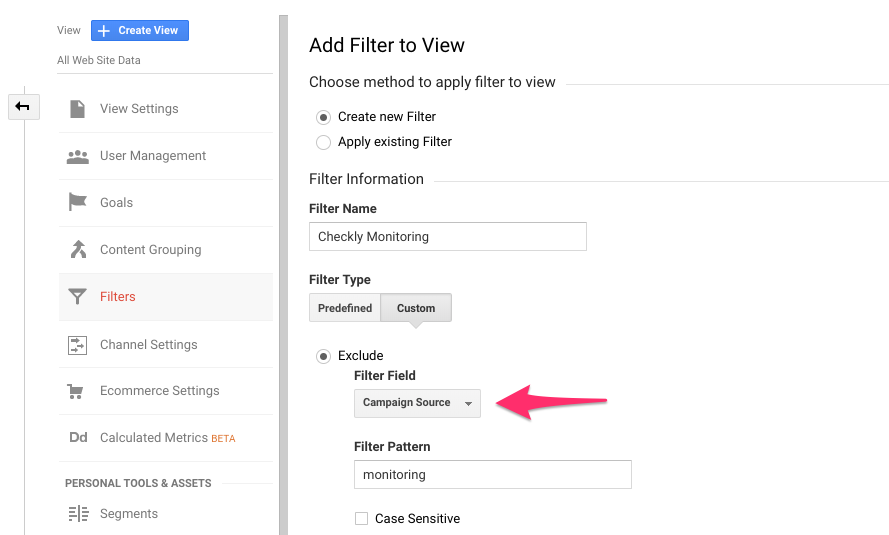Allowlisting & filtering traffic
There are cases in which you might have to allowlist Checkly traffic in your firewall, load balancer or other to prevent it from being blocked or skewing analytics data. Below are some solutions to help you achieve that.
IP range allowlisting
All of Checkly’s monitoring traffic comes from a fixed source of IP addresses. Allowlisting Checkly traffic by IP address is possible by configuring your network to only allow traffic from these IPs.
To get the current list of IP addresses, you can use the following endpoints (API spec):
- A JSON array of all IPv4s currently used
curl https://api.checklyhq.com/v1/static-ips
- A JSON object with regions as keys and arrays of all IPv4s of that region as the value
curl https://api.checklyhq.com/v1/static-ips-by-region
- A simple txt file. One IPv4 per line.
curl https://api.checklyhq.com/v1/static-ips.txt
- A JSON array of all IPv6s currently used
curl https://api.checklyhq.com/v1/static-ipv6s
- A JSON object with regions as keys and arrays of all IPv6s of that region as the value
curl https://api.checklyhq.com/v1/static-ipv6s-by-region
- A simple txt file. One IPv6 per line.
curl https://api.checklyhq.com/v1/static-ipv6s.txt
We update this list very infrequently (6 months or less) so querying it with at reasonable frequency is recommended.
Header/user agent allowlisting
If you are using Cloudflare or a similar provider, one or more of your automated checks might trigger a bot detection mechanism.
If you want to prevent that from happening without exposing your website to any and all automated traffic, you might want to set up a new firewall rule allowing traffic from Checkly as long as it contains a specific header or sets a certain user agent.
You can make the header and/or user agent specific to your own Checkly user account by grabbing the first eight digits of your unique user ID (or another fixed value of your choice), which you can find below your account name on the Account Settings page. Embedding this value in your checks will enable them to be allowed through by your firewall rules.
Allowlisting API checks using headers
To allowlist API checks, allow traffic that contains a cookie in the shape of Cookie: "checkly-account:<UUID>", with <UUID> being your shortened Checkly ID or other chosen value.
You can then set the Cookie header while editing your check.
You can set the header at group-level using API check defaults to have it applied to every API check in the group.
Allowlisting browser checks with user agents
To allowlist browser checks, allow traffic with user agent containing Checkly/<UUID>, with <UUID> being your shortened Checkly ID or another chosen value.
You will then be able to set up the matching user agent in your browser checks using Playwright’s userAgent property.
import { test } from '@playwright/test'
const myUserAgent = 'Mozilla/5.0 (X11; Linux x86_64) AppleWebKit/537.36 (KHTML, like Gecko) Chrome/78.0.3904.108 Safari/537.36 Checkly/abcd1234'
test.use({ userAgent: myUserAgent })
test('my user agent test', async ({ page }) => {
// ...
})
const { test } = require('@playwright/test')
const myUserAgent = 'Mozilla/5.0 (X11; Linux x86_64) AppleWebKit/537.36 (KHTML, like Gecko) Chrome/78.0.3904.108 Safari/537.36 Checkly/abcd1234'
test.use({ userAgent: myUserAgent })
test('my user agent test', async ({ page }) => {
// ...
})
Filtering Google Analytics
You might want to filter Checkly traffic in Google Analytics to prevent Checkly browser checks from skewing your results.
If you are using Google Analytics 4 or newer, Checkly traffic is already being excluded as it is recognized as coming from a known bot-traffic source.
Older Google Analytics versions
If you want to filter Checkly traffic in older Google Analytics versions, here is one way to do it:
- Add a UTM source tag to the URLs your requesting, i.e.:
await page.goto('https://app.checklyhq.com/login?utm_source=monitoring')
- In Google Analytics, filter on campaign source.

For detailed instructions, see the Google Analytics docs on custom filters. Note that this will take some hours for this to take effect.
Default Checkly user agent
This is what Checkly sends as user agent:
- API & Multistep checks:
Checkly/1.0 (https://www.checklyhq.com). - Browser checks:
Checkly, https://www.checklyhq.com.
Changing the user agent of a check will not change the browser or browser version, it will simply set a new string for user agent.
Last updated on June 23, 2025. You can contribute to this documentation by editing this page on Github